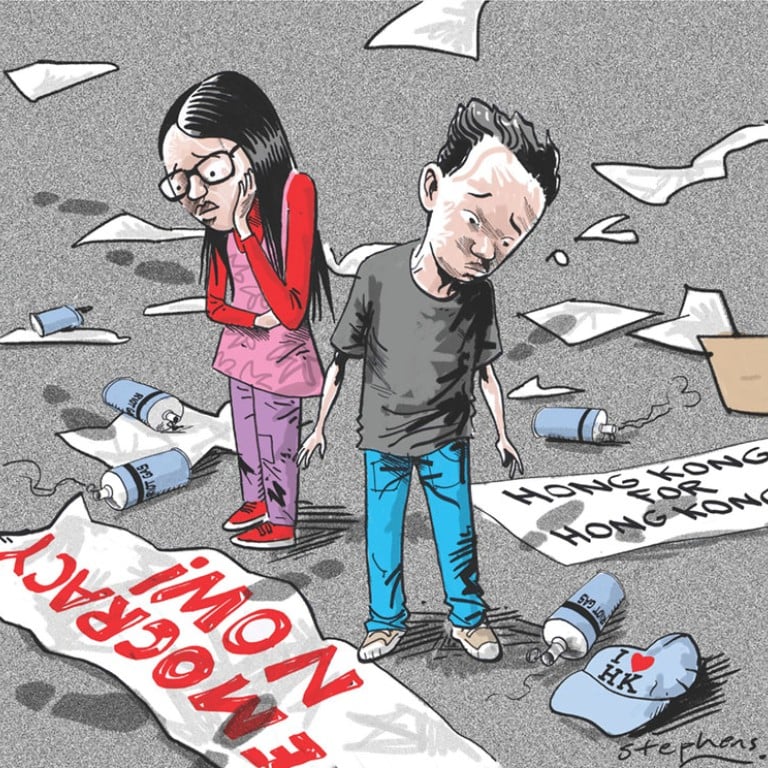
Hong Kong's future lies beyond the street chaos
Bernard Chan says that, as a community, Hong Kong must work harder to convince its dispirited and politically aware young people that we can build a future for them
Like most people in Hong Kong, I was in a state of real shock on Sunday evening and the following day. The scenes of disorder around the government complex in Tamar and elsewhere, and of police firing tear gas into crowds, left me stunned.
These are things we see on news reports from cities far away in the Middle East, Europe or the United States. I never thought I would see on television such things coming live from government and commercial districts just a kilometre or two from my own home.
After the shock had died down, I felt sadness. Texts and emails from friends all over the world asked if I was OK.
Hong Kong - such a safe and stable city - suddenly has a reputation around the world for chaos.
Reputations, especially as a result of media news coverage, can be unfair or misleading. That's what I told myself. And I believe it more than ever now. I am confident that this unrest in our streets does not reflect the real Hong Kong, or the Hong Kong of the future.
But it is a sign that things have gone wrong, and it should make all of us calm down for a while and ask ourselves what is happening, and what we can do about it.
It is easy to point fingers and blame some individual or group. It is wrong to hold the frontline police responsible. They do a tough job, and they were working under very tiring and difficult conditions.
They followed their operational guidelines and performed their duties with their traditional professionalism. The situation on the ground was very difficult to manage and, with such a big crowd, any small confrontation could easily have turned into a tragedy.
Unfortunately, this is perhaps one of the few things people are agreeing on at this time. Loads of my own friends and other contacts are bitterly arguing with each other about who is to blame for the chaos on the streets.
Some feel extremely strongly that the authorities were totally correct in ordering the use of pepper spray and tear gas.
Their reasoning is simple: highways are public facilities, and thousands of people are inconvenienced and goods delayed if the way is blocked.
People have the right to assemble and protest, but the authorities have a duty to remove them if they harm other people's well-being and freedom. Others feel just as strongly that the decision to use tear gas was unjustified, since the protesters were almost all peaceful.
A lot of people also think that the use of tear gas simply made matters worse by increasing the anger among other members of the community, who then joined the crowds on the streets. Some friends of mine are barely on speaking terms right now because of this quarrel. I do not think either of these groups has a monopoly on the truth.
The right to protest must come up against limits when it starts to infringe on other citizens' rights. At the same time, it seems likely that the use of force - transmitted instantly on social media - added to the anger and increased the number of protesters.
Public opinion in Hong Kong is obviously badly divided over many things. Perhaps the top three right now are: the rights and wrongs of the past week's protests, the planned constitutional reforms, and livelihood and social justice issues like the widening wealth gap. If we want to start healing our society, we should be honest and accept that these things are linked. Recent pro-democracy protests have attracted large numbers of young people. These are the same generation who see no hope of buying a home or starting a business in tomorrow's Hong Kong. This is not a coincidence.
Pointing fingers about demonstrations, sit-ins and tear gas will not solve anything. It just increases the divisiveness and bitterness. In order to reunite the community, we need to convince our bright and politically aware younger generation that Hong Kong offers them a future.

